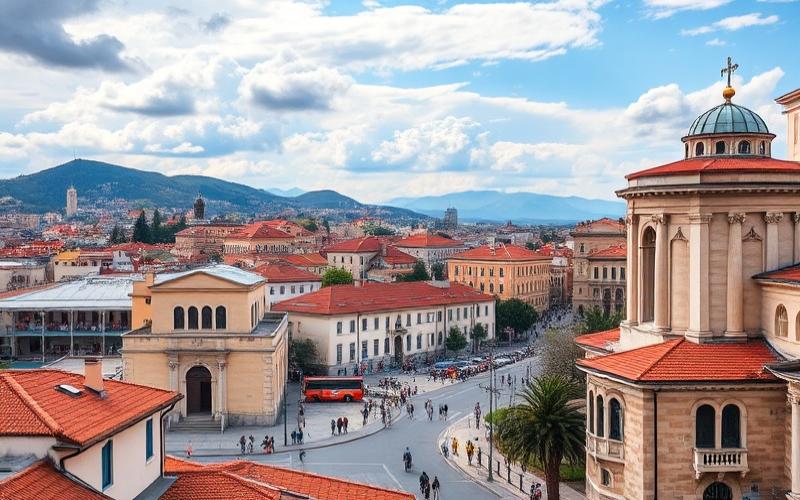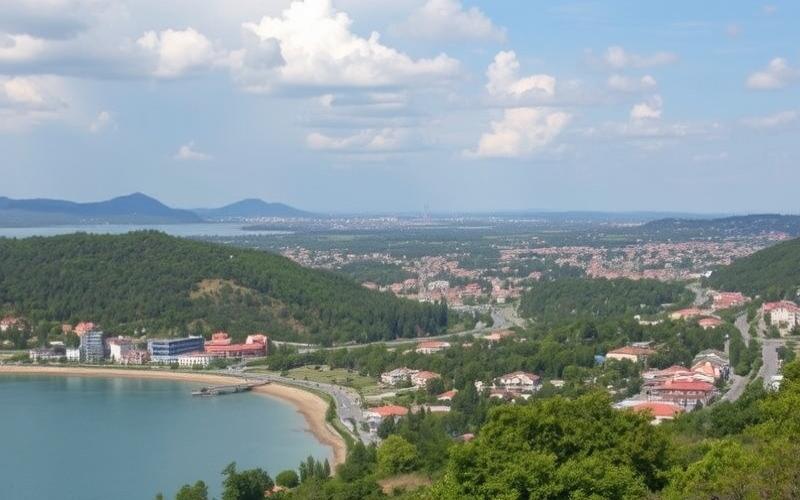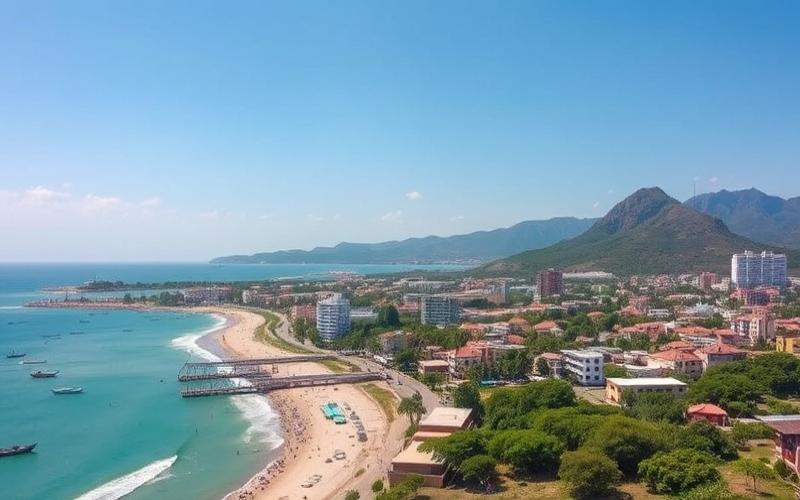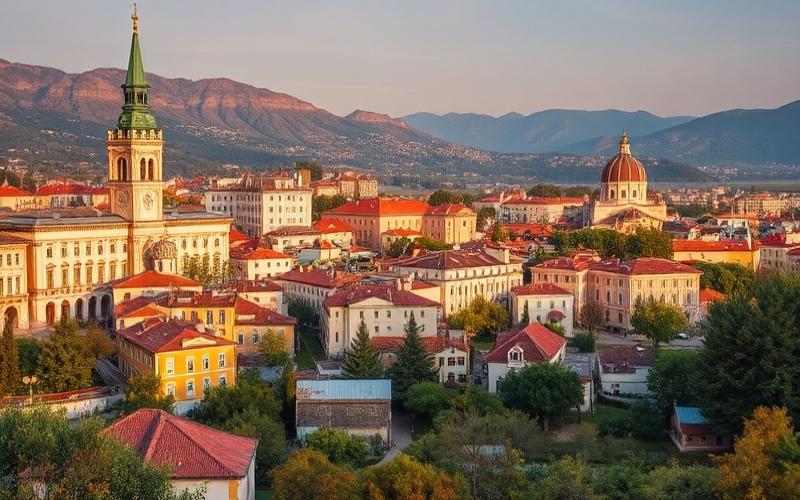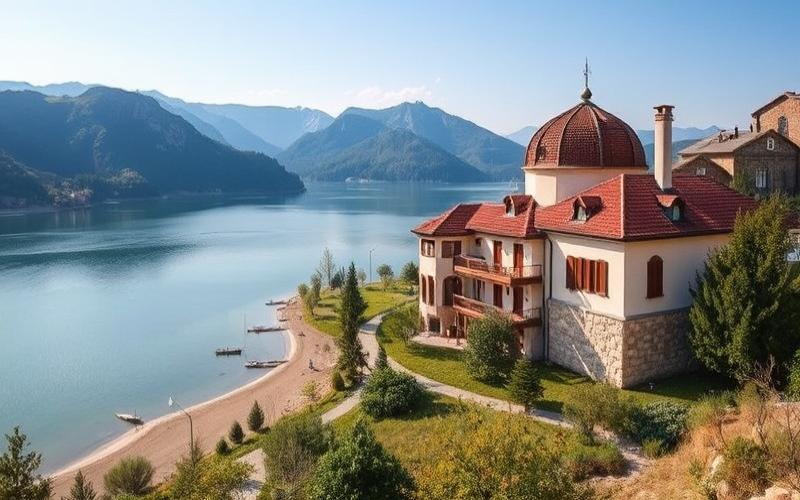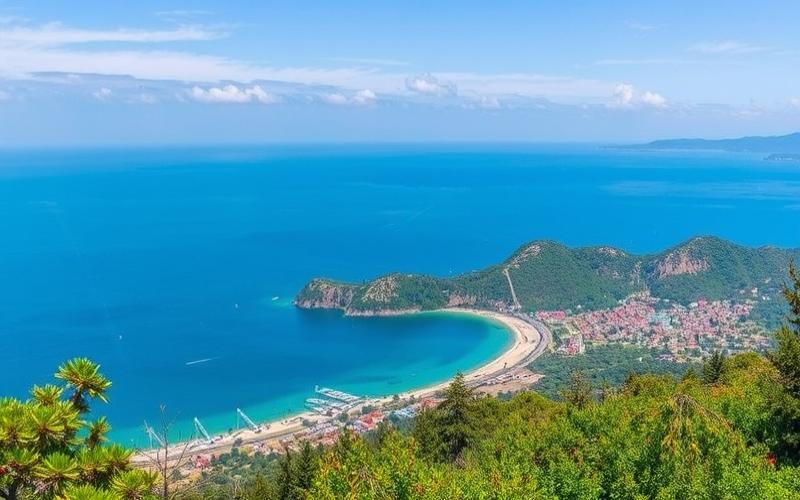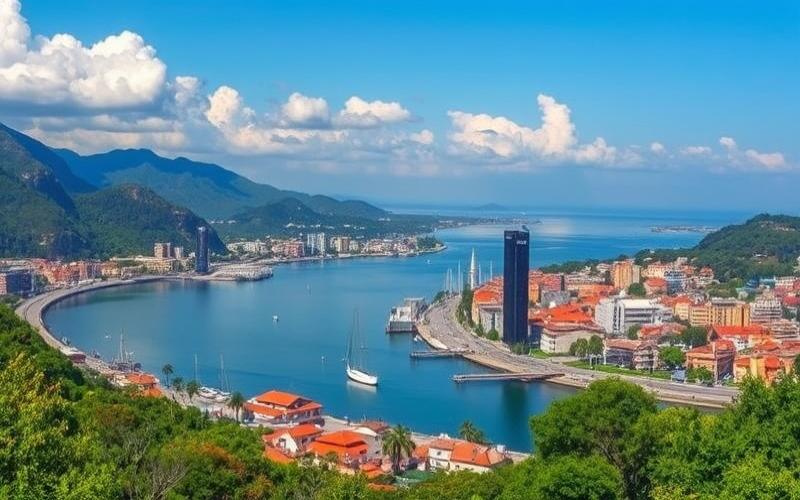
 Published on and written by Cyril Jarnias
Published on and written by Cyril Jarnias
Investing in Student Housing in North Macedonia: A Profitable Opportunity?
In the current context of education globalization and dynamic economic growth, North Macedonia is emerging as fertile ground for investments in student housing. With a massive influx of international students attracted by increasingly recognized universities, the country is experiencing growing demand for suitable and affordable housing.
This trend raises a crucial question for investors: can investment in student housing truly prove profitable in the long term in this evolving region? By examining the economic, demographic, and cultural factors influencing this market, this article provides an in-depth analysis to answer this question.
Good to Know:
North Macedonia is attracting more and more foreign students thanks to competitive tuition fees and constantly improving teaching quality.
The Student Real Estate Market in North Macedonia
Current State of the Student Real Estate Market in North Macedonia
The student real estate market in North Macedonia is marked by continuously rising prices, particularly in major university cities like Skopje, Tetovo, Bitola, and Ohrid. In April 2025, the average price per square meter in the city reached approximately €1,783, ranging between €1,071 and over €2,500 depending on location and property type. In Skopje, apartments typically trade between €1,500 and €2,000/m², with a total cost ranging from €90,000 to €180,000 for a standard home.
| City | Property Type | Average Price (€/m²) | Total Range (€) |
| Skopje | City Center Apartment | 1,500 – 2,000 | 90,000 – 180,000 |
| Ohrid | Apartment/Lake View | 1,400 – 2,000 | — |
Demand remains strong, driven by student population growth linked to the presence of major universities such as Saints Cyril and Methodius University in Skopje or the University of Tetovo. These institutions attract not only local but also regional students, creating pressure on the rental supply around campuses.
Key Points on Recent Developments:
- Apartment prices increased by nearly 21% at the end of 2022 compared to the end of 2021; this trend continued with an additional +7% in the last quarter.
- The steady increase in the number of students intensifies competition for housing located near university centers.
- In some sought-after neighborhoods (especially near Ohrid or downtown Skopje), prices can significantly exceed the national average.
University Influence and Student Population:
Major universities act as real estate attractiveness hubs:
- High student concentration leads to strong demand for furnished studios and small apartments.
- In Tetovo particularly, this demand drives up both rents and purchase costs in some peripheral neighborhoods where modern campuses or new student residences are concentrated.
Challenges Encountered:
- Occasional risk of excess supply, with rapid multiplication of new constructions facing sometimes less sustained university enrollment rates.
- Fragile stability: an imbalance in supply and demand can lead to volatility or temporary stagnation in land values according to some analysts.
- Strict local regulations in some tourist areas (example: Ohrid), strongly limiting real estate densification despite high seasonal attractiveness.
Opportunities for Investors:
Current government policies favor:
- Easier access to property through several targeted tax incentives in certain strategic urban areas
- Temporary tax exemptions in some designated priority zones
This attracts both local and international investors seeking stable returns through long-term student rentals.
Summary List of Advantages/Disadvantages:
Advantages:
- Continuous growth in the number of students
- Prices still competitive compared to other European capitals
- Appreciable potential linked to tourism development
Disadvantages:
- Possible volatility if too many new projects are not absorbed by real demand
- Restrictive local regulations sometimes limiting rapid expansion
Outlook & Investment Returns
The trend remains oriented towards a moderate but steady increase in student property values, mainly driven by local university dynamism. Investment returns are considered attractive in this context where the constant influx of students generally ensures a high occupancy rate. However, any potential investor should carefully monitor localized supply-demand balance, as well as any regulatory developments likely to durably impact this specific segment of the Macedonian real estate market.
Good to Know:
The student real estate market in North Macedonia currently presents interesting opportunities for investors, with average prices for a student apartment around €200 to €300 per month, although rates vary depending on proximity to major universities like Saints Cyril and Methodius University in Skopje. In recent years, a slight increase in demand has been observed, partly due to a continuous rise in local and international student population, supported by government policies favoring the reception of foreign students. However, supply remains limited, creating market tensions and encouraging the construction of new residences. Investors must consider strict local regulations regarding zoning and construction standards, factors that can delay or complicate real estate projects. Nevertheless, with a government policy focused on education development and a growing student population, future prospects remain positive, with attractive potential returns, especially in major university cities where demand currently exceeds supply. Recent public investments in educational infrastructure also increase the value of properties located near campuses, a trend that could strengthen in the coming years.
Financial Benefits of University Residences
University residences in North Macedonia offer significant financial benefits compared to other forms of student housing, including shared apartments or private studios.
| Housing Type | Average Monthly Rent (City Center) | Utilities Included |
| University Residence | 90–150 €* | Yes (water, electricity, internet) |
| Shared Apartment | 150–250 € | Often included |
| Private Studio | 200–350 € | No |
*The exact rate for a residence room may vary depending on the university and services offered. Residences often offer some of the lowest rates in the student rental market.
Main Benefits for Students:
- Included Services: most university residences include access to water, electricity, heating, and Internet in their rent.
- Aid and Discounts: living in a residence generally entitles students to discounts on urban public transport passes (bus or train tickets costing less than 1 euro), as well as on certain local sports or cultural activities.
- Overall Savings: thanks to included utilities and attractive prices, a student living in a residence can save between €60 and €100 per month compared to a standard private rental. Long-term (3 years of study), this represents up to over €3,000 in savings.
- Community Life: easier access to university facilities and integration into local student life.
“By choosing a university room instead of a private studio in Skopje, I cut my fixed monthly expenses almost in half. Meals at the university restaurant are also much cheaper than cooking alone every day.”
— Testimony collected from an Erasmus student
Benefits for Real Estate Investors:
- High Profitability: constant demand for this type of housing guarantees a high occupancy rate throughout the academic year.
- Rental Stability: regular flow thanks to the annual influx of national and international students; low risk of non-payment when payment is managed through public institutions or universities.
- Appreciation Potential: with a real estate market already offering attractive prices – two-room city center apartment around €250–€350/month, three-bedroom house in the suburbs €400–€600/month – the studied sector still benefits from considerable margin before saturation of the residential stock.
Recent Statistics on the Student Real Estate Market:
- The average cost for a student room ranges between €90 and €150 per month, compared to €150–€250 for a standard shared apartment off-campus.
- The total monthly budget needed to live comfortably as a student remains between €500 and €700, all inclusive, significantly lower than in major European cities.
These elements demonstrate that choosing university residence is not only financially advantageous for students but also represents a profitable investment in the current Macedonian real estate context.
Good to Know:
In North Macedonia, university residences offer a notable financial advantage compared to shared apartments, with costs often about 30% lower, allowing students to achieve substantial monthly savings. Residences typically include services such as heating, electricity, and Internet access, significantly reducing additional expenses and offering discounts on public transport passes and access to various activities. For investors, these residences represent an attractive opportunity thanks to a stable return rate of about 6% to 8%, strong rental demand ensuring full occupancy, and long-term capital appreciation potential. A recent study reveals that 65% of students prefer residences for their practical and economic aspects, thereby reinforcing the stability of the student real estate market in the country.
Recent Trends in the North Macedonian Real Estate Market:
- Real estate prices remain attractive, with an average price of about €1,783 per square meter in the city in early 2025, fluctuating between €1,071 and €2,500 depending on neighborhoods and period.
- In Skopje, the capital and main university hub, the purchase cost of an apartment is around €1,500–€2,000 per m², well below those of major European cities.
- Demand for shared student housing has strongly increased in neighborhoods near universities. This phenomenon is explained notably by the continuous rise in the number of international students enrolled through the Erasmus program in recent years.
- Property owners now favor this rental model which combines several economic advantages:
| Criterion | Erasmus Shared Housing | Classic Studio/Apartment Rental |
| Occupancy Rate | Very High | Medium to Good |
| Rent Received (€/month) | Higher (rent divided but cumulative higher than studio) | Single Rent |
| Tenant Retention | Good | Variable |
| Vacancy Period | Low | Higher |
Economic Advantages for Property Owners:
- Significant reduction in vacancy periods, thanks to the constant flow of new Erasmus students each semester.
- Optimized profitability: shared housing generally allows renting the same property at a higher overall rate than if occupied by a single person or family.
- Positive synergies between international students, promoting better use and valuation of common spaces; this also allows owners to justify certain improvements or renovations that increase the perceived value of the property.
“The average gross rental yield in these neighborhoods currently ranges between 6% and more depending on the shared housing arrangement, above many other traditional residential formulas.”
Statistics on Erasmus Increase & Impact on Demand:
- The number of enrollments via Erasmus to Skopje and Bitola has increased annually for three years, with an estimated growth of nearly +15% over this recent period. This dynamic increases pressure on the existing student housing stock—thus reinforcing interest in any new supply adapted to international needs.
Comparison with Other Residential Formulas:
| Residential Model | Return on Investment (ROI) |
| Student Shared Housing | Higher ROI thanks to cumulative rents + low vacancy |
| Classic Furnished Rental | Moderate/Stable ROI |
| Private Serviced Residence | Variable ROI depending on manager |
International student shared housing therefore currently offers the best compromise in terms of gross profitability, annual occupancy stability, and operational flexibility for private landlords.
Good to Know:
With a 15% increase in Erasmus enrollments in North Macedonia in 2023, shared housing in university areas is becoming a lucrative option for property owners. These investments often guarantee a stabilizing effect on the occupancy rate, often above 90%, thanks to constant demand from international students. Rents received are generally higher, due to cost sharing and benefits linked to cultural diversity that promote optimal use of common spaces. Compared to other residential formulas, shared housing significantly reduces vacancy periods, ensuring a more stable cash flow. For property owners, this formula represents a faster and more profitable return on investment, often surpassing traditional rental operations, while meeting growing demand facilitated by synergies between foreign students.
Disclaimer: The information provided on this website is for informational purposes only and does not constitute financial, legal, or professional advice. We encourage you to consult qualified experts before making any investment, real estate, or expatriation decisions. Although we strive to maintain up-to-date and accurate information, we do not guarantee the completeness, accuracy, or timeliness of the proposed content. As investment and expatriation involve risks, we disclaim any liability for potential losses or damages arising from the use of this site. Your use of this site confirms your acceptance of these terms and your understanding of the associated risks.




